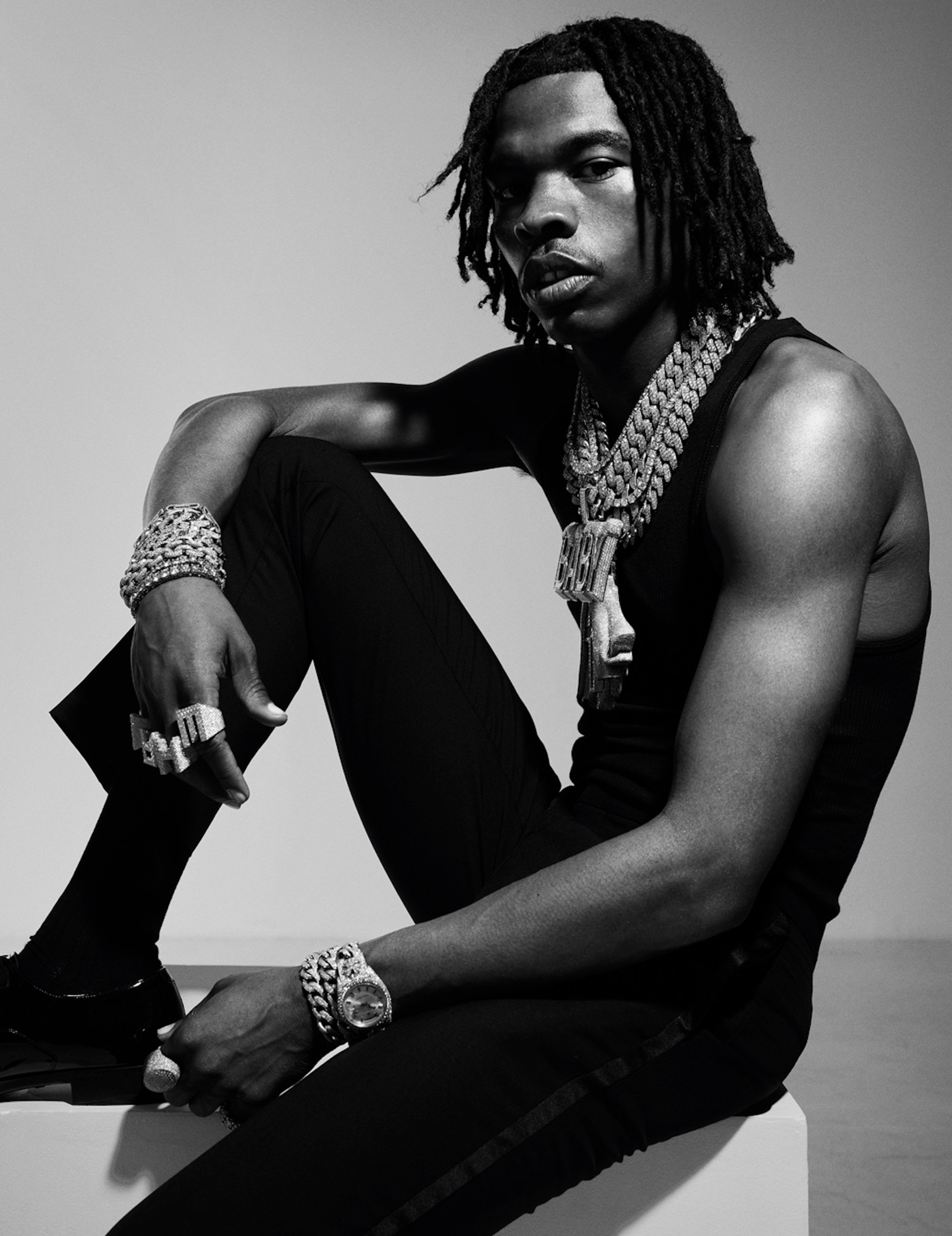This story originally appeared in i-D’s Out Of The Blue issue, no. 366, Winter 2021. With thanks to Tiffany & Co. Order your copy here.
“Can I get some hot sauce?” Lil Baby politely asks a drive-thru worker, as he takes a quick break from our phone call. The 26-year-old is having to multitask; grabbing a quick bite during a journey to the private jet that will transport him to the next stop on his US tour, while answering questions for his i-D cover interview. This is just another day in the life of the most popular rapper in the world right now.
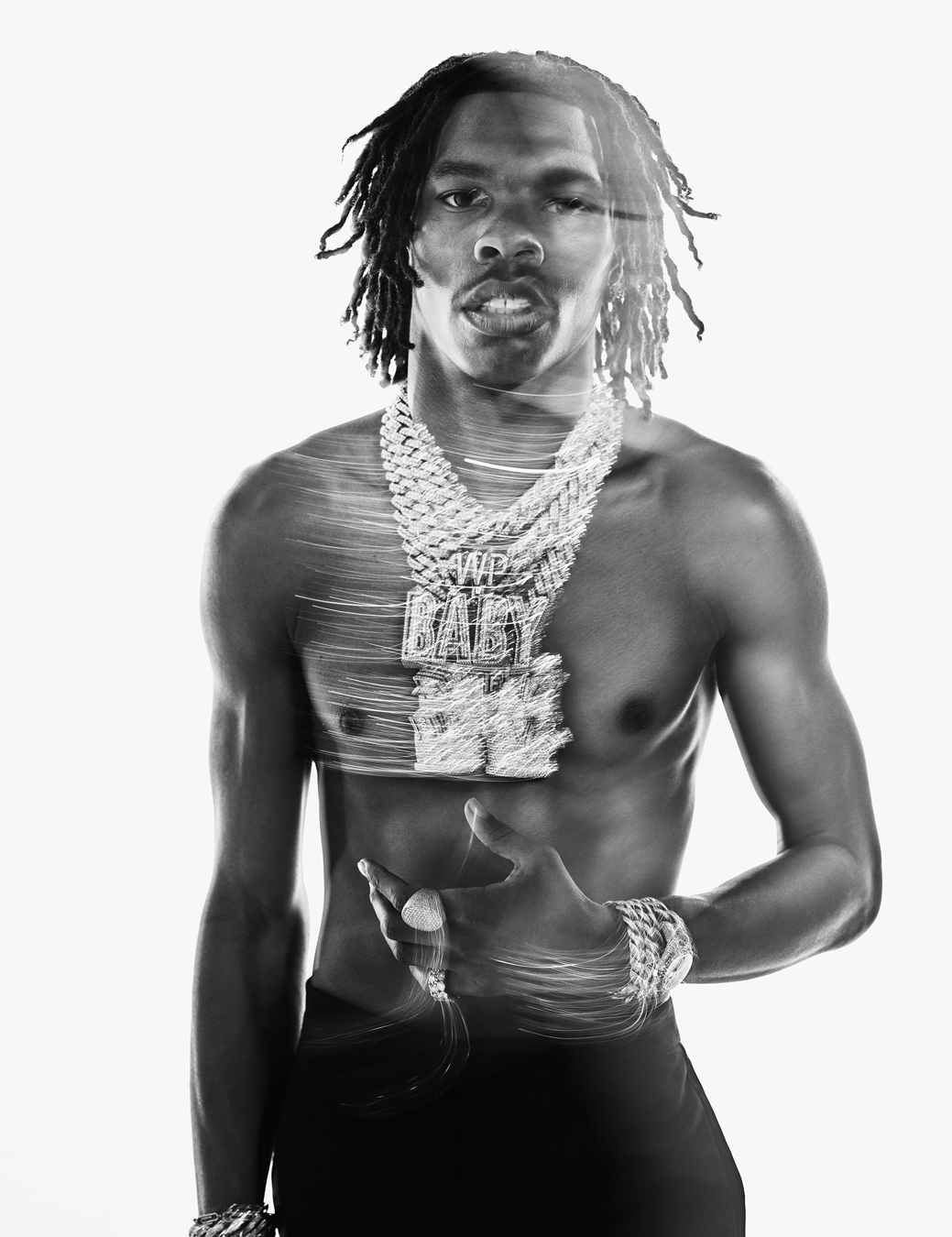
While this kind of activity might have become the norm for the prolific hitmaker who regularly racks up millions of YouTube views and tops Billboard charts, it’s almost overwhelming to think that he reluctantly started his music career only four years ago. His rise has been so dramatically swift, that it’s almost without comparison. It’s no stretch to label him the latest rap voice of his generation.
“I always thought rapping was kind of corny. I never wanted to be no rapper growing up,” he explains. “I had dreams of being a millionaire, a kingpin.” His speaking cadence matches his rapping style: rapid and focused, and with a contradictory hint of lethargy deep within his infamously authentic Atlanta accent.
Born Dominique Jones, Lil Baby was raised alongside his two sisters in the historic West End neighbourhood of South Atlanta by his single mother. “I would describe life growing up in Atlanta, on a scale of one-to-10 — with 10 being the hardest — as a six. My life wasn’t too bad, but I didn’t have a picket fence or a silver spoon. I had to get it how I live.” Despite his mixed experience growing up in the city, Baby still resides there, and still loves it. “From the people to the way we dress, the way we talk, to the way our women look and the way our kids grow up… there’s no place like Atlanta,” he states proudly.
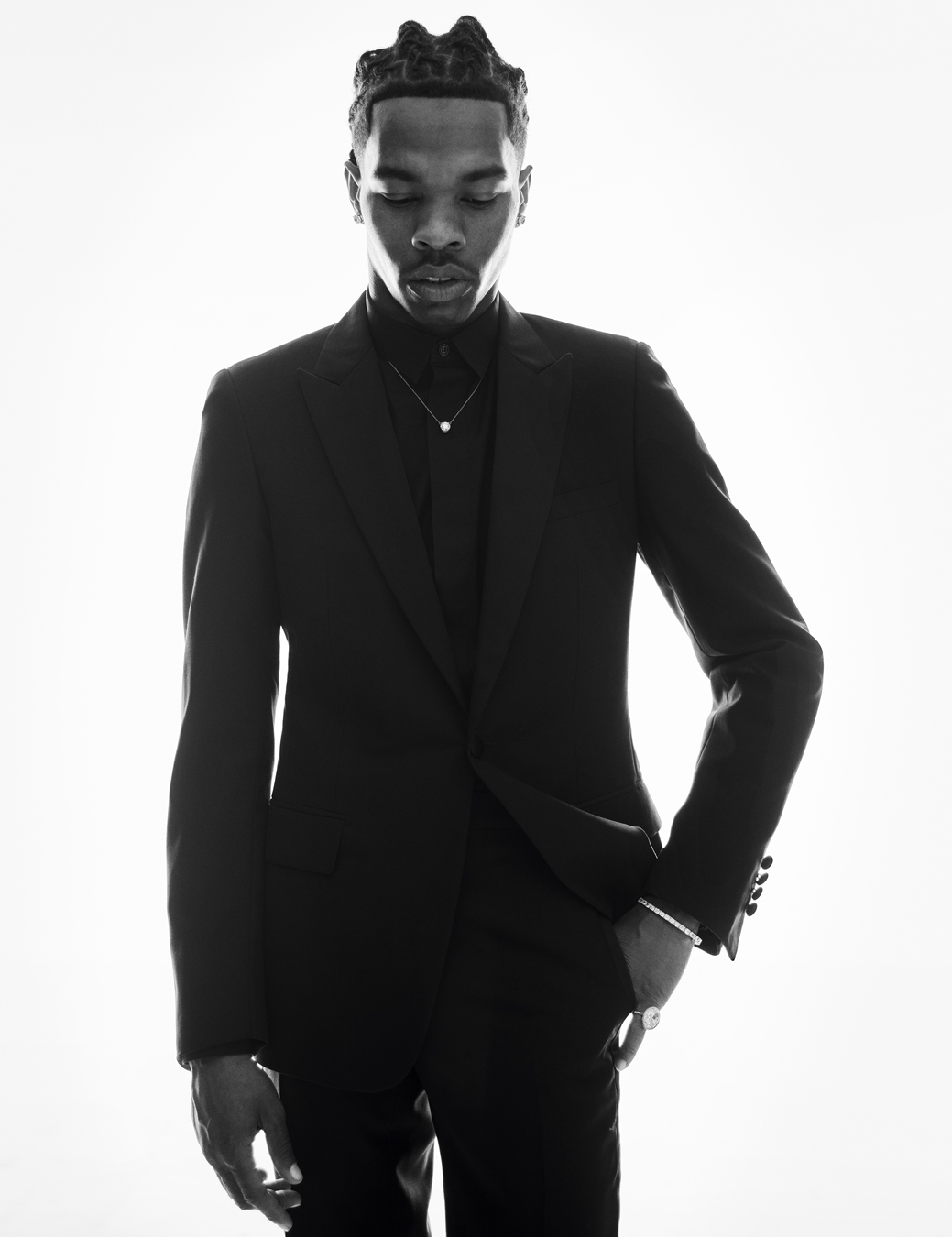
His formative years did involve education, although he dropped out of high school in the ninth grade, opting to earn his living on the streets instead of pursuing his studies further. “I was always one of the smartest kids in the class, it wasn’t hard for me. But I didn’t go to school,” he explains. “I was just trying to get me a bankroll.”
This period spent hustling in the local area brought him into contact with Kevin “Coach K” Lee and Pierre “Pee” Thomas, founders of the record label Quality Control Music, which boasts the likes of Migos, Lil Yachty and City Girls on its impressive roster. Known for their sharp eye for up-and-coming talent in what has become hip-hop’s most vital city, the pair felt they had yet another star on their hands, but Baby wasn’t so sure: “They was like my big brothers, and once they had a studio, the doors were always open for me to come and chill, because they knew I could possibly be somewhere doing something else. Coach K would always ask me ‘Baby, you’re about the lifestyle, why don’t you rap?’ I would always tell him ‘I can’t be no rapper’”.
The ‘doing something else’ caught up with Baby, and he spent a two-year stint in prison at the age of eighteen. “Trouble is probably the easiest thing to get into,” he laments. Upon his release, he had two choices — fall back into his old life, or take Quality Control Music up on their offer of recording time. He chose the latter, with the assistance of schoolmate and fellow groundbreaking Atlanta artist, Young Thug, who paid Baby to stay off the streets and spend time in the studio after also spotting his potential.
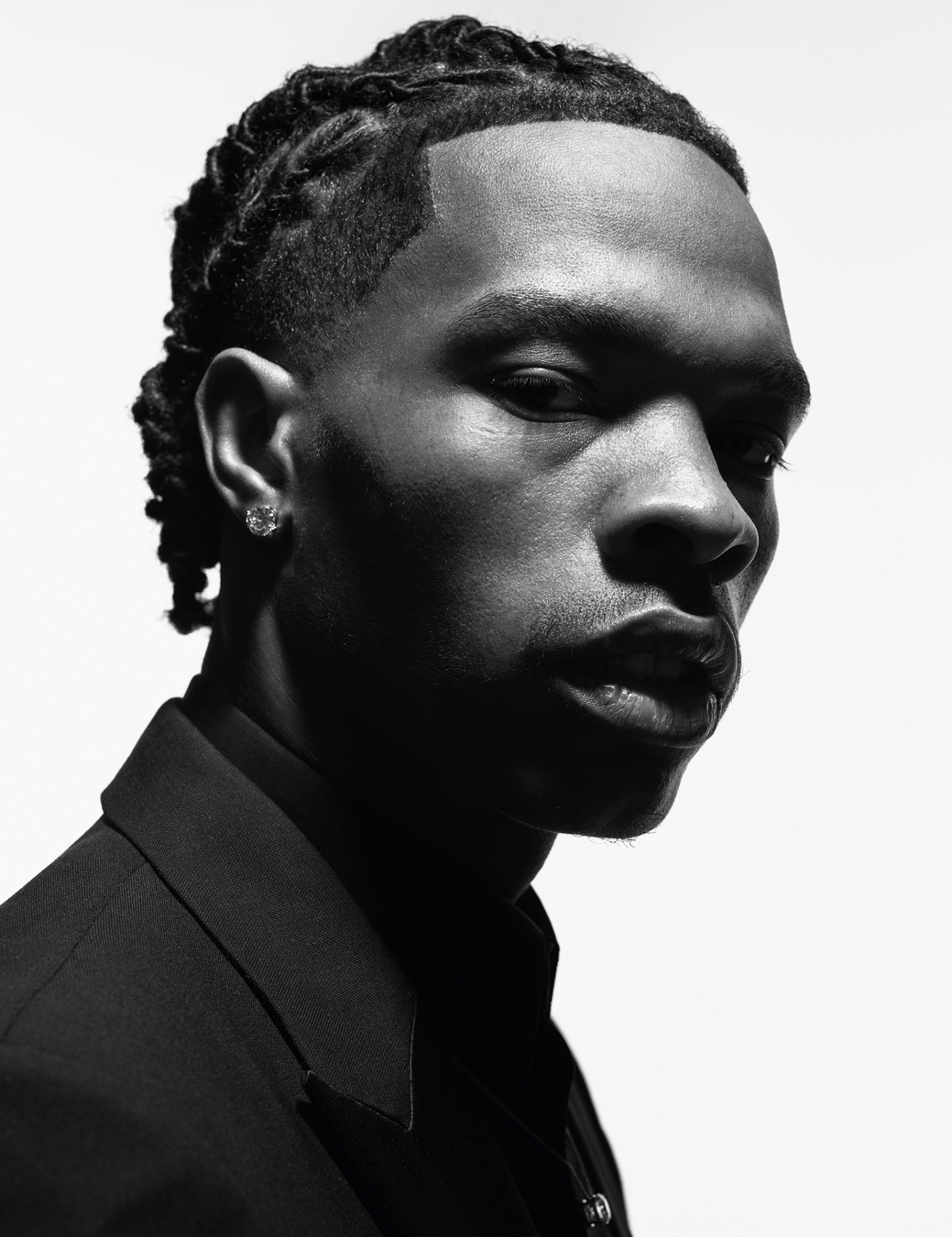
“I speak very highly of Young Thug, he’s a person I would call my friend. In school, we didn’t really hang together, he’s from a different side of town, but we always knew each other,” Baby says of his mentor. “I learned a whole lot from Thug, from being around him. I would go hang around at the studio and I’d be watching him and learning little things from him. I’m a visual learner.”
This time, his education seemed to pay off. By the end of 2017 — just a year after he had started rapping — listeners were offered an indication of his relentless work rate, harmonious high-pitched flow and heady ambitions, with the release of an unprecedented six mixtapes and launch of his record label, 4 Pockets Full. But nothing could have prepared him for the stratospheric ascent to stardom that awaited: “Honestly, I just remember I was going in the studio saying ‘imma rap’. I never knew that I could reach this level. I never knew that this level even existed.”
“The message I would give to the next generation is: don’t get side-tracked by distractions and never forget it’s a marathon, not a sprint.”
His anticipated debut album Harder Than Ever arrived the following year in 2018, with his growing reputation as the industry’s next big thing confirmed by the hit single, “Yes Indeed”. The success of the track felt like a huge moment — not just because of the eyebrow-raising, meme-generating lyric ‘Wah, wah, wah/bitch, I’m the baby’, but because Baby’s position was cemented by the ultimate industry co-sign; the song was a collaboration with Drake. “When you get your first Drake collab you’re super happy. He sent me the song one morning saying, ‘I got a record for you’. I was just like, “I’m ready to turn this bitch up!” The song was the first of many fruitful team-ups with the Toronto megastar, and Baby teases there may be still more to come: “We made a couple of songs in the studio that haven’t come out yet.”
If there’s one thing Lil Baby knows about today’s algorithmically-served rap audience, it’s that you have to strike while the iron is hot. This may explain why he quickly followed up just months later with “Drip Harder”, a joint mixtape that saw him partner up with close friend and fellow rising Atlanta household name Gunna. “We came up together, so it’s always a pleasure to work with him. He’s one of the people in the industry I consider to be family.” The pair formed one of rap’s most formidable duos in recent history, with tracks such as “Drip Too Hard” and “Close Friends” dominating airwaves, end of year lists and Instagram captions around the world.
If all that success wasn’t enough, it was during this period that Baby became a parent for the second time, something that he says helps keep him motivated: “Fatherhood definitely changed me as a person, now I’m not just living for me. I’m living for other people, people that I created. It’s not even like your momma or your sister, it’s someone that you brought into this world.” And outside of his family? “The fans, the money. If somebody else is hotter or they’re doing what I need to be doing. Stuff I wanna buy, stuff I wanna try. It’s a never-ending saga.”
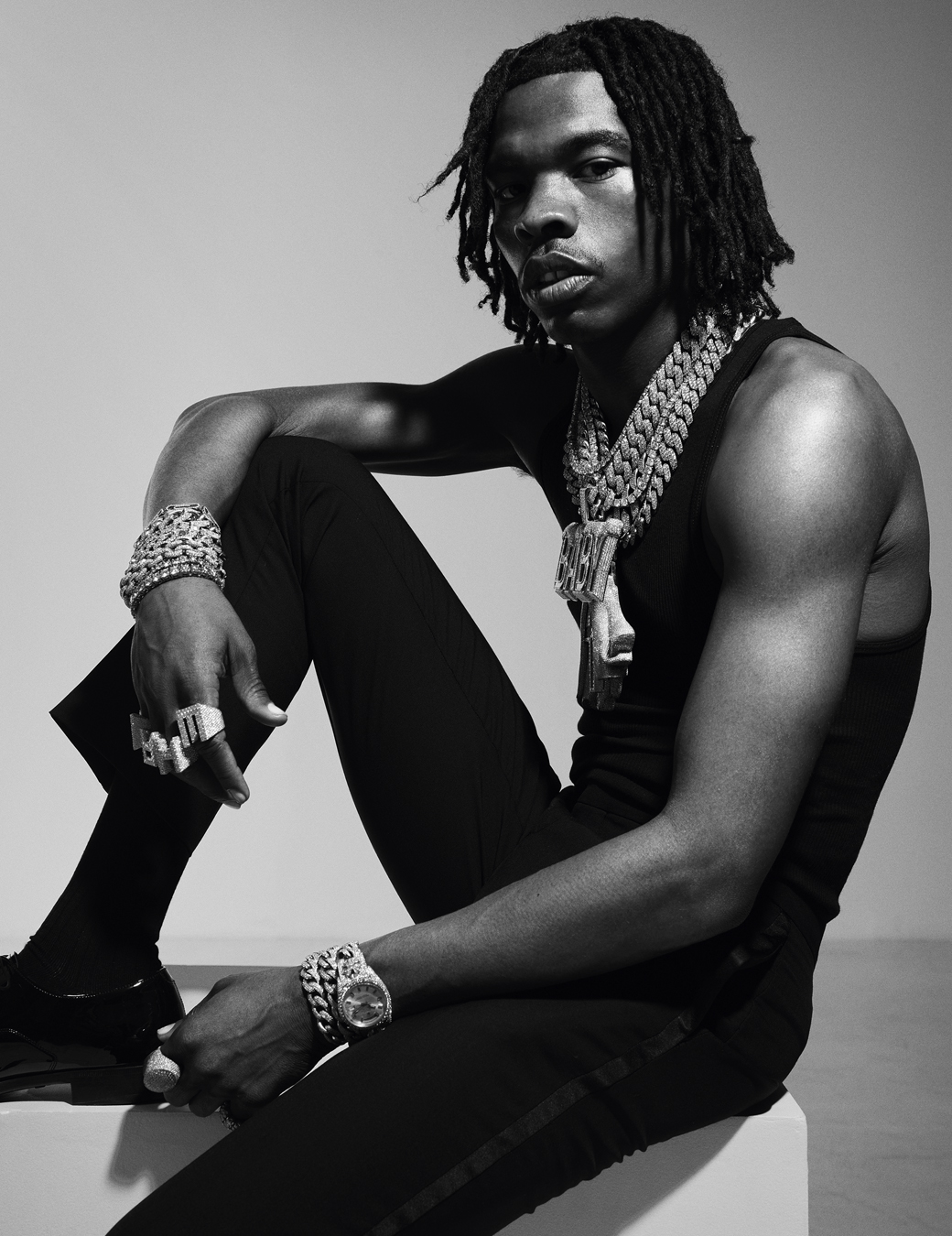
While the latter claim seems to align with Baby, ticking the boxes of everything you need to be a modern-day trap rap star. Alongside his vast jewellery collection and archetypal braggadocios lines about women, cars and clothes; what has set him head and shoulders above his direct peers is his willingness to approach introspective themes — themes that rival rappers may not be comfortable exploring. He is refreshingly open and autobiographical, resonating with a new generation of rap listeners, who are more in touch with discussions around mental health and social issues than their predecessors.
“I’m inspired by my life, stories I’ve heard from friends, things I’ve seen,” he says, “even if I didn’t know the people involved, I’ve seen it.” For instance, take “Emotionally Scarred”, one of many standout singles from his 2020 sophomore album My Turn, which sees Baby tackle how his quick success has led to a lack of trust in relationships, rapping: “I ain’t got nothing against you, we human, we all got issues / But I’m tired of being tired of being tired / That part of me done died.” Or in the song “The Bigger Picture”, a protest anthem released in the wake of the murder of George Floyd, where he called for justice against police brutality and systemic racism. “When an issue involves so much of me, I feel a responsibility,” he says. “I try not to get into too much stuff because I’m here to rap. But when it involves me so much I gotta speak on it. How can I not?”
Incidentally, that LP indicated Lil Baby’s newfound position at rap’s top table, spending five weeks atop the Billboard 200 chart after debuting at number one, and taking the crown for the most-streamed album in America during 2020. However Baby does not let such major accolades get in the way of his laser-like focus to keep on creating. “I’m not into number ones or number whatever,” he says. “I just aim to put out a good body of work that sticks.”
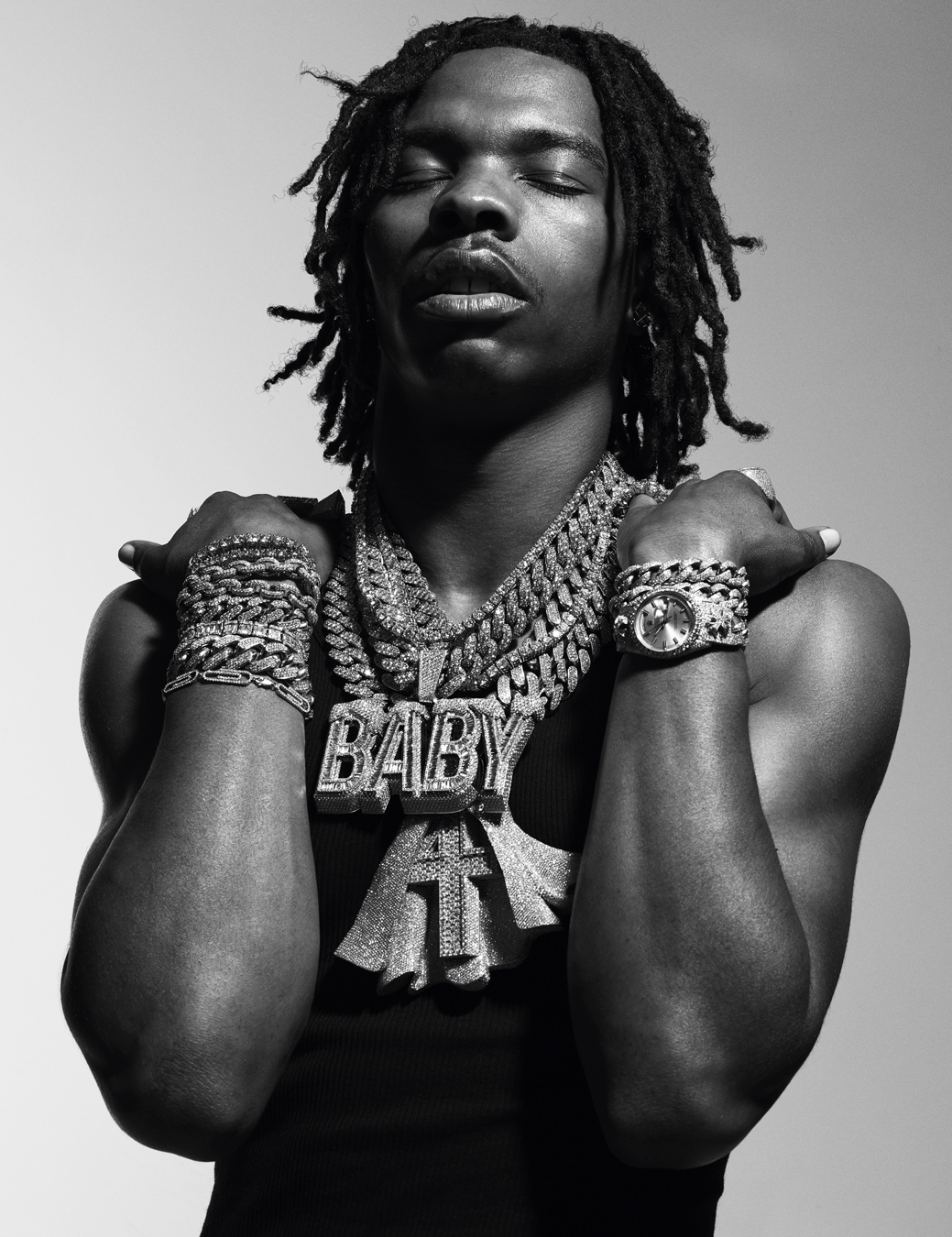
With multiple hits, seven BET Award wins and three Grammy award nominations under his belt in such a short space of time, it’s hard not to wonder if Lil Baby has discovered a secret formula in the studio that his rivals are yet to stumble upon. He keeps his circle of producers tight — regularly working with Southern talent such as Wheezy, Quay Global and Turbo — enjoys having his “safe haven of everyday people” around him during sessions and demands “a clean working space”. But for him, it’s ultimately an organic process led by his ear: “I’m always looking for the vibe. I’m looking for a beat that will make me feel a certain type of way. It’s almost like the beat brings the words out of me. I haven’t got to the stage where I write down lyrics yet. I said I was going to write for my new album, but I don’t really see it. Maybe I will or maybe I won’t!”
That said, he’s not adverse to change, and seems to be embracing the natural evolution that comes with his star status as we discuss the creative process for his next project, where he’s been getting more involved in the beat-making process than ever before. “Last week was actually my first time just sitting in a creative space with the producers; I’m just now learning my sound, and what kind of beats I want to rap on specifically,” he says with an air of excitement.
Another part of that growth has seen Baby become more involved with matters pertinent to his local community. In the past year he has launched a $150,000 scholarship programme for his high school, and sponsored a seventh birthday party for George Floyd’s daughter Gianna, with whom he also visited Vice President Kamala Harris at the White House, to urge for legislation to help eliminate racial bias in policing by reforming police training. These actions, it seems, feel natural to someone who entered rapping with a more focused outlook on his goals. “When I started music I was already in my twenties, the industry hasn’t taught me a lot about life but it opened so many doors for me,” he says. “It allowed me to look at life in a whole different way. It broadened my horizons.”
As our conversation comes to a close — Baby’s private jet awaits — he feels typically self-examining as we discuss his latest success, yet another number one hit song-filled album titled The Voice of the Heroes. It was a joint project with Chicago rapper Lil Durk, released earlier this year. “At this point, I can finally say I’m an artist,” he decides. “Not just a rapper, because I’m performing on so many different levels at this point. Now people can say, ‘Baby’s an artist’. For people that have never heard of me, I’d tell em my music is as real as it gets, plain and simple.” As for anyone feeling inspired to be the next Lil Baby? His advice is as effortlessly effective as his approach to rap: “The message I would give to the next generation is: don’t get sidetracked by distractions and never forget it’s a marathon, not a sprint.”
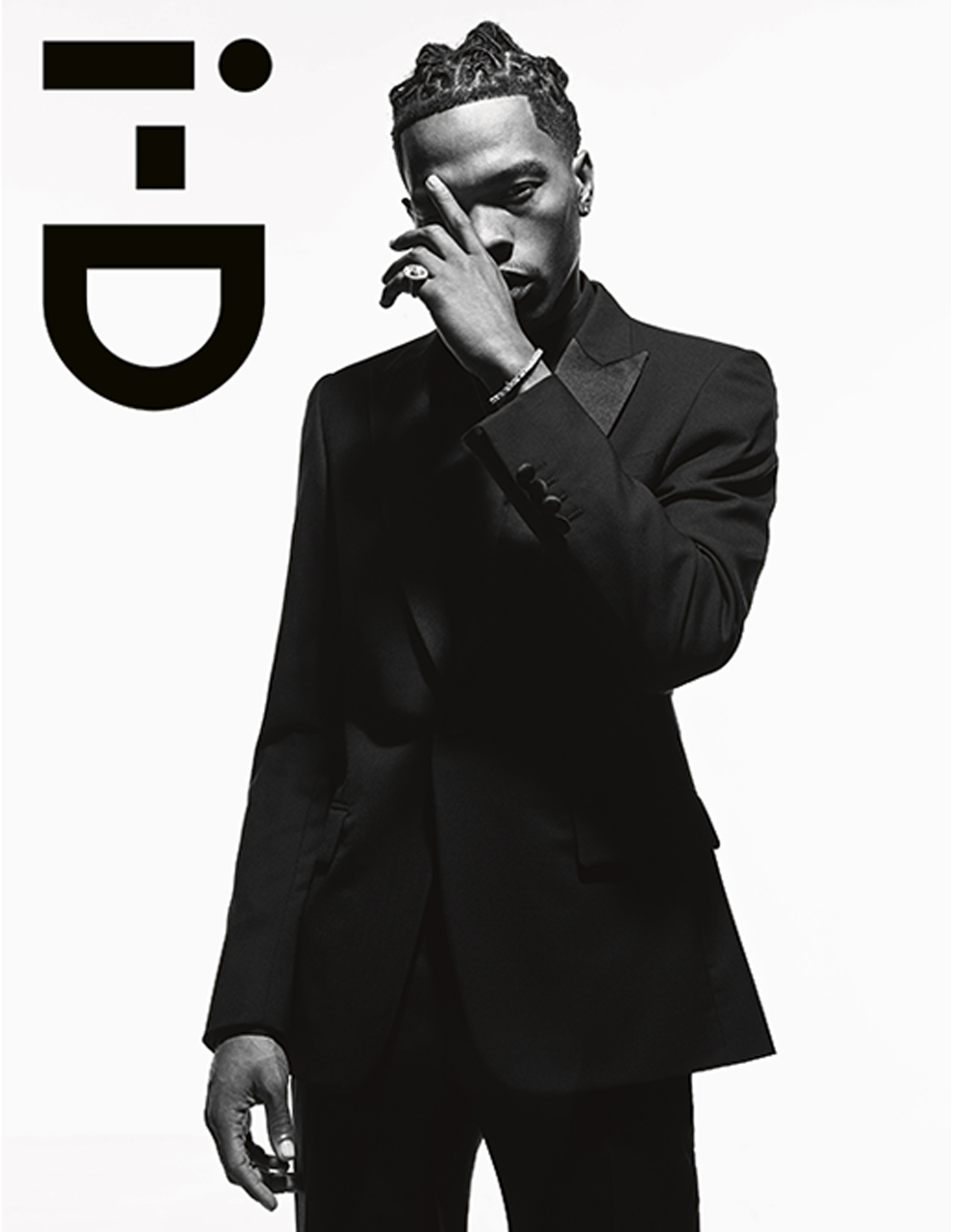
Credits
With thanks to Tiffany & Co.
Photography Mario Sorrenti
Fashion Alastair McKimm
Grooming Chaz Hazlitt using Babyliss Xotics Sweet Jamila and Blue Water
Photography assistance Kotaro Kawashima and Javier Villegas
Digital technician Chad Meyer
Fashion assistance Madison Matusich, Milton Dixon III, Jermaine Daley and Casey Conrad
Tailor Martin Keehn
Production Katie Fash, Layla Néméjanki and Steve Sutton
Production assistance William Cipos
Casting director Samuel Ellis Scheinman for DMCASTING
